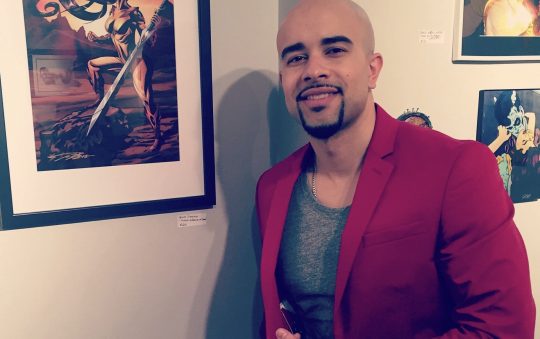
Showtime’s Championship Boxing host Brian Custer may not be alive today if it were not for a routine physical. At the age of 40, his doctor offered to do a prostate exam, telling him that if his results were higher than a four, he might have to be checked for prostate cancer.
“We did it, it was uncomfortable,” Custer said. “I even said to myself ‘I don’t even think I might do that again.”
His results that year were a 2.4 and he decided to skip the prostate exam when he was 41. At 42, his doctor recommended that he take the test again and Custer did.
“I ended up getting my number back a couple days later, it was a 5.4,” he said. “It had doubled in basically a year’s time.”
After finding cancerous samples in his biopsy, doctors demanded Custer to get his prostate removed within the month.
“There was only one option really for me at this point and that was to have surgery,” Custer said.
Custer has since been cancer-free and now uses his experiences to bring awareness of prostate cancer and how to prevent it. He has partnered up with the Prostate Cancer Foundation to share his story.
“I got educated about all of that going into it,” he said. “I had to help other people.”
According to the American Cancer Society, African American men are 1.6 percent more likely to develop prostate cancer than White men and 2.6 percent more likely than Asian men. Known as “the silent killer,” men with undetected prostate cancer may not see symptoms until it’s too late.
“If you catch it early, you can live a long life,” Custer said. “If you don’t go to the doctor, it will take you down and it will take you down quickly.”
Prostate cancer is 100 percent treatable if it’s caught in its early stages, yet the exam can be invasive. Treating the cancer can cause complications including loss in fertility. As Custer reached out to men, these factors were a common complaint.
“Guys tell me that all the time: “I don’t want a doctor sticking his finger up my rear end for a test,”” Custer said. “But I tell them all the time “Listen, do you want to live or do you want to die because if you want to die, keep doing what you’re doing and not go to the doctor.””
His story was an inspiration to his fans and encouraged them to get exams. Custer recalled being approached by a long line of fans after a Showtime fight at the Barclays Center in Brooklyn. Some fans had not been to the doctor in decades but reading about his fight against prostate cancer urged them to get a checkup.
“It was like every person had a different story because they went to the doctor all because they read about what happened to me and it brought me to tears,” Custer said. “That was just God’s affirmation that this is one of the reasons why you’re here: to help people and to use your platform for good.”
Along with hosting boing title matches, Custer can also be seen calling games for Ice Cube’s Big3 League. For more information about the Prostate Center foundation, visit pcf.org.






